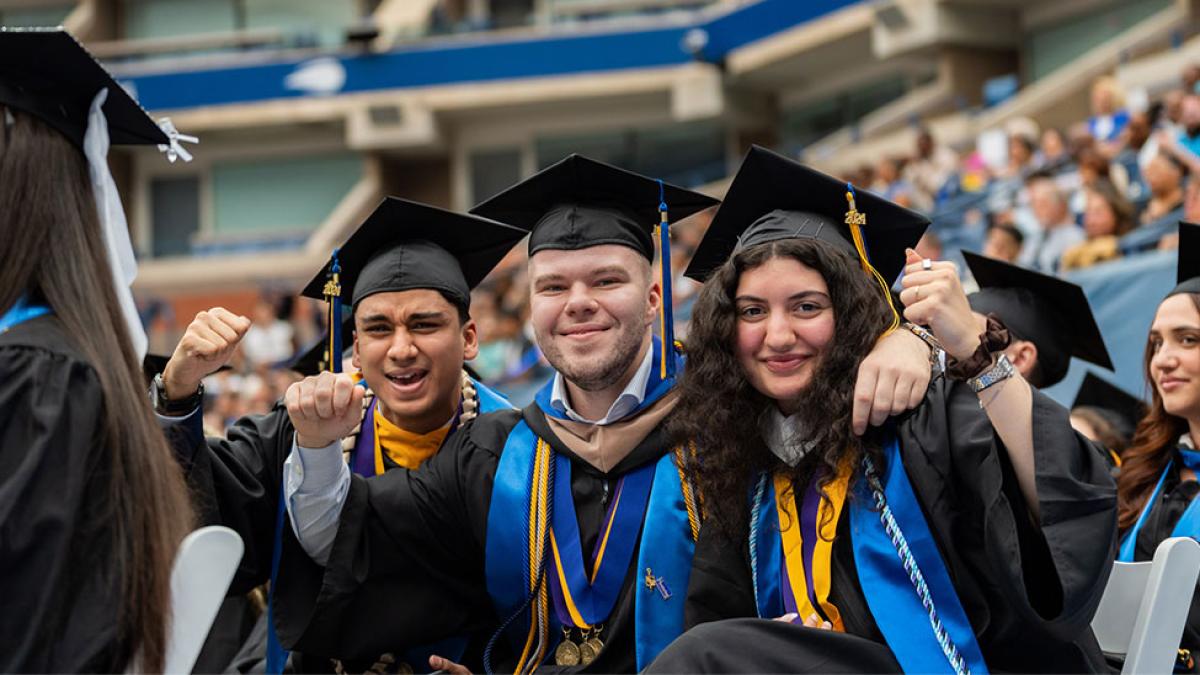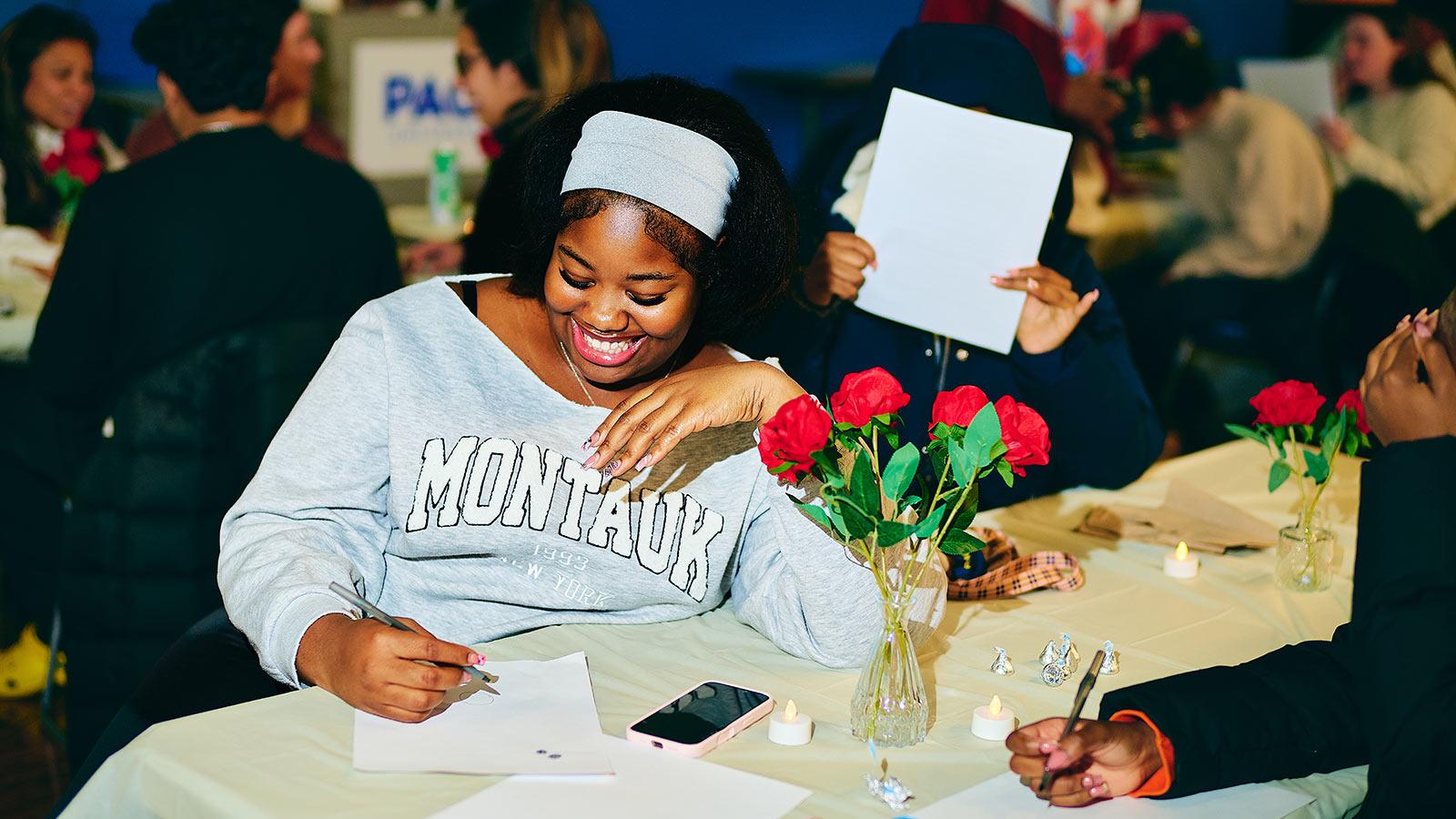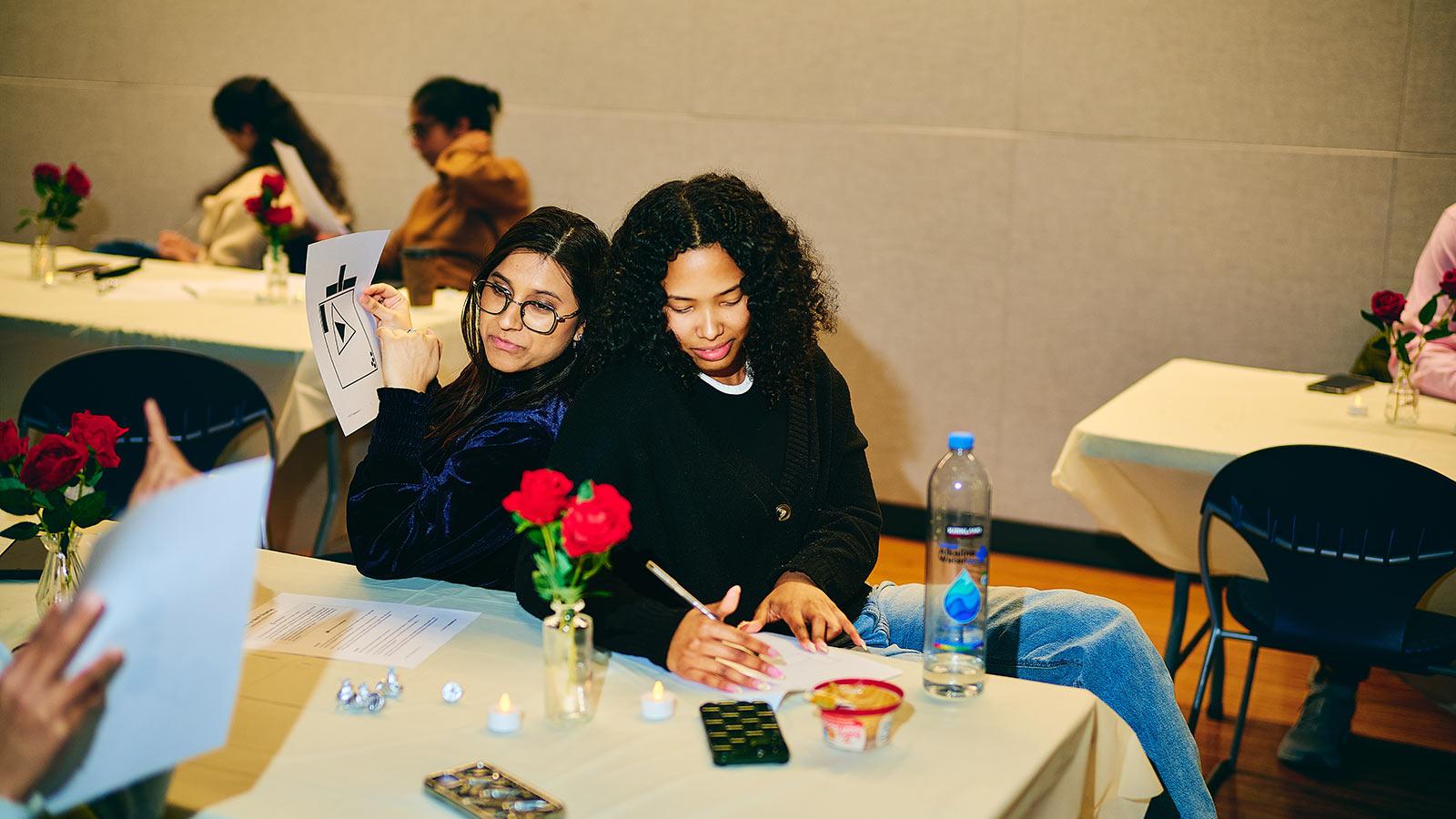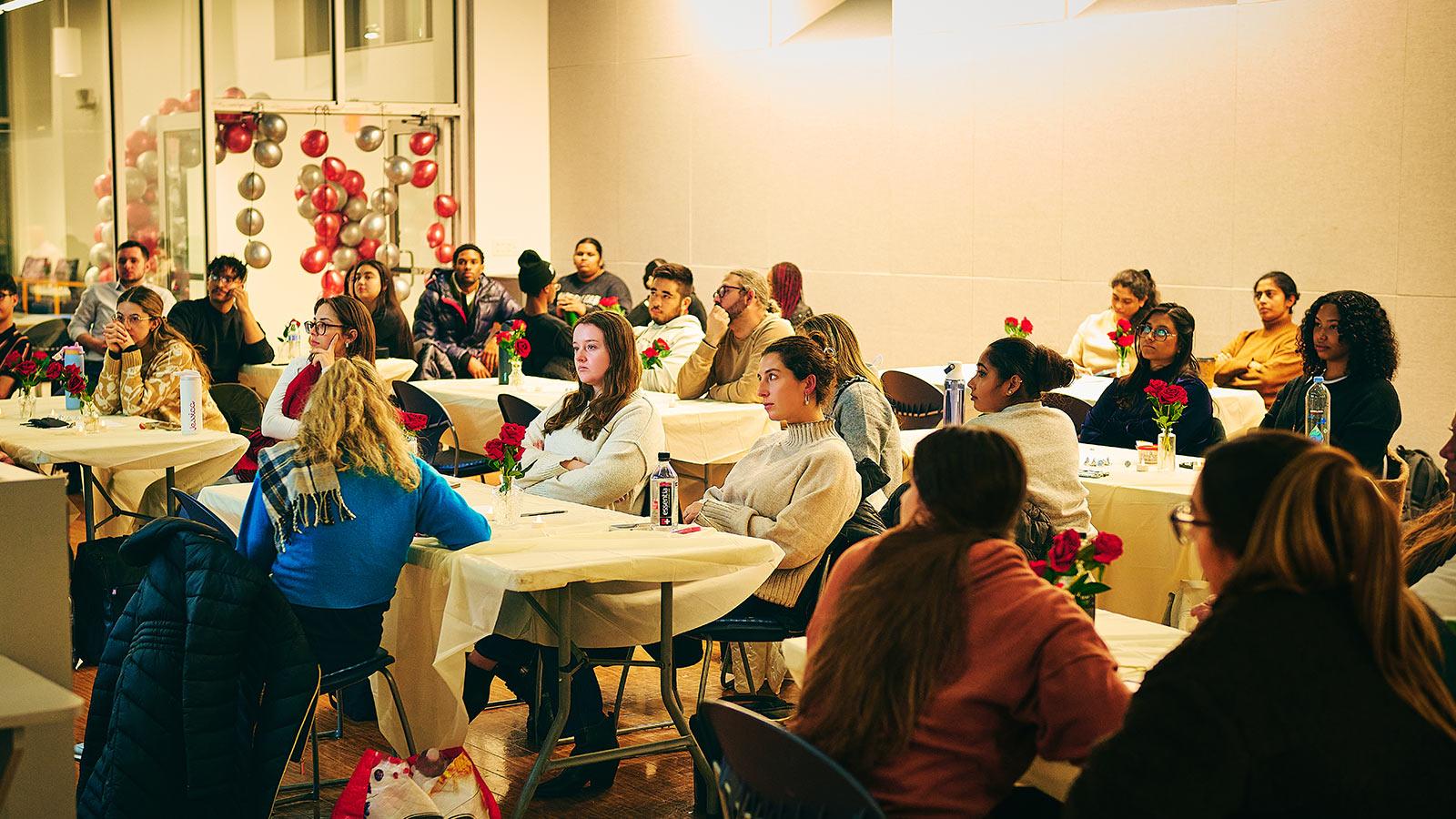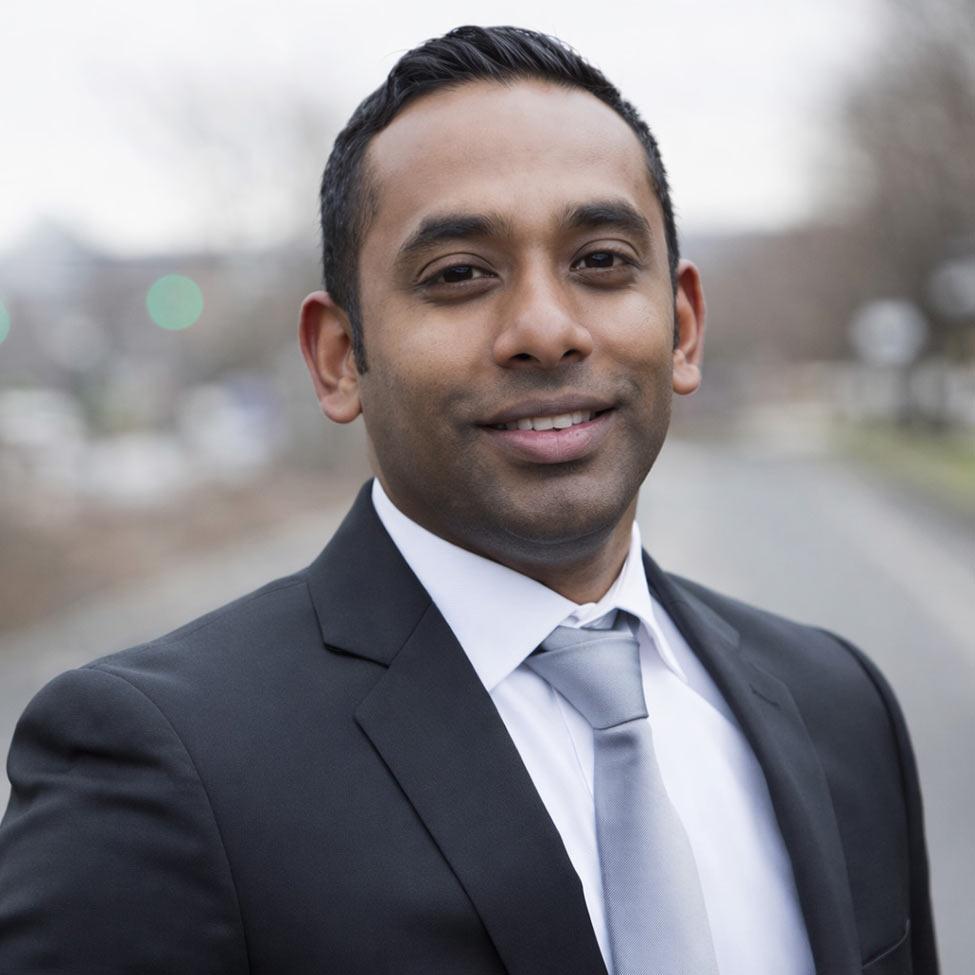
Nuclear Testing From Decades Ago Continues To Kill And Devastate Communities, A New Report Concludes
Dyson Professor Matthew Bolton, co-director of Pace’s International Disarmament Institute, contributed several chapters to a major new report from Norwegian People’s Aid examining the enduring global impacts of nuclear weapons testing. The landmark study warns that decades-old atmospheric nuclear tests are projected to cause at least two million additional cancer deaths worldwide, underscoring that the human and environmental consequences remain ongoing.
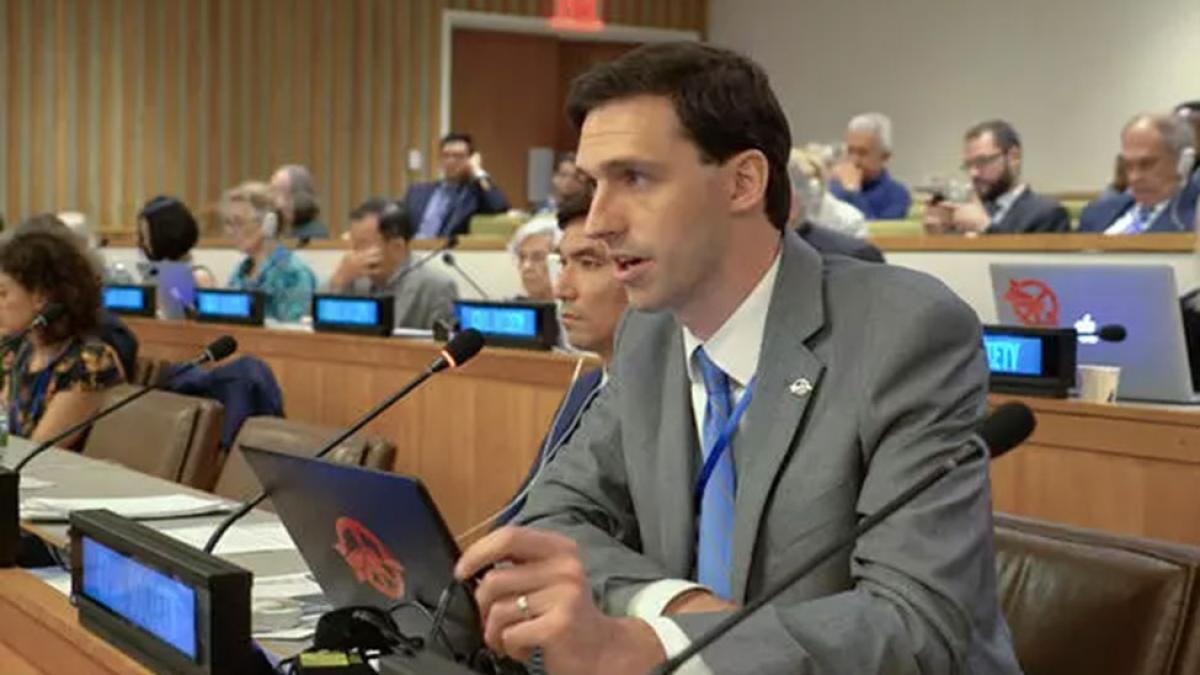
MAGA Respond To New Alex Pretti Video: ‘Leftist Hoax Destroyed’
In a Newsweek article examining the debate over the fatal shooting of Alex Pretti, Pace Haub Law Professor Bennett L. Gershman offered important legal context on the limits of retroactive justification in use-of-force cases. Professor Gershman emphasized that the new videos surfaced from an earlier encounter between Pretti and federal immigration agents “do nothing to exculpate or excuse the conduct of the federal agents” involved in the January 24 killing. His remarks highlight a core constitutional principle: the legality of lethal force turns on whether an imminent threat existed at the moment it was used—not on efforts to recast prior conduct after the fact.
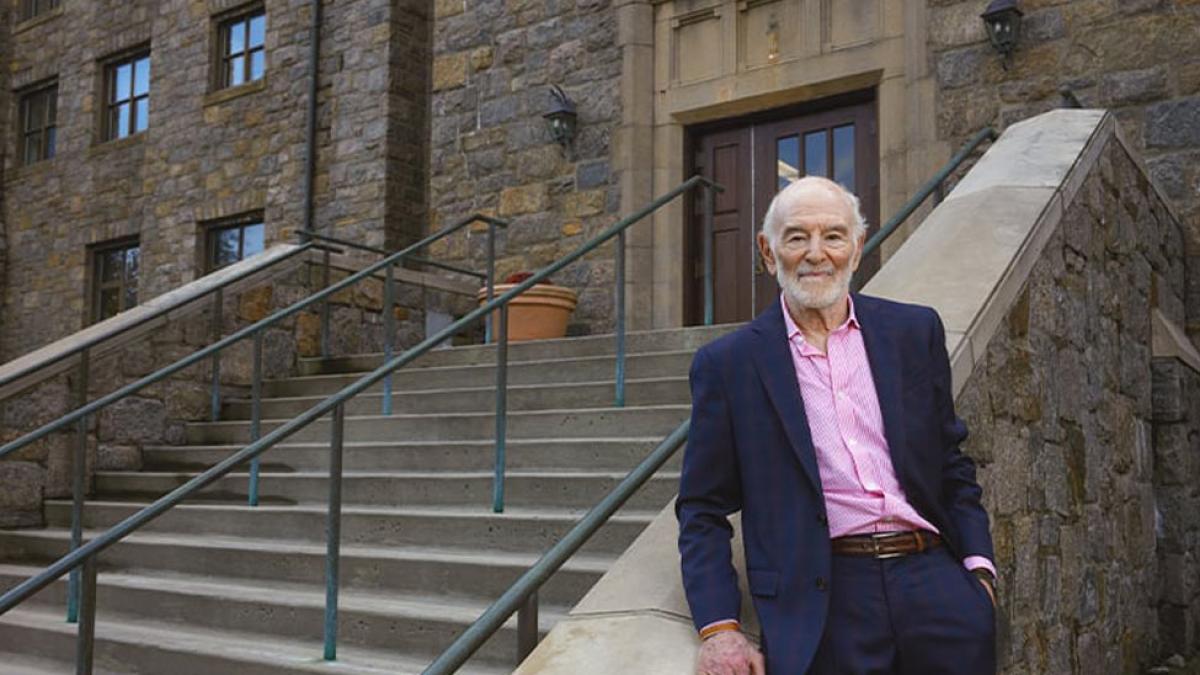
On Being Ill At 100: Virginia Woolf’s ‘Best Essay’ Still Shapes How We Read Sickness
- Read more about On Being Ill At 100: Virginia Woolf’s ‘Best Essay’ Still Shapes How We Read Sickness
Dyson Emeritus English Professor Mark Hussey is quoted in The Conversation in a feature marking 100 years of Virginia Woolf’s essay On Being Ill, with Hussey’s introduction underscoring the value of slow, careful reading in how we understand sickness and language.
Pace University Professor Randi Priluck Weighs In on Super Bowl Ads
Lubin Professor Randi Priluck provides expert insight to FOX 5 News on Super Bowl advertising strategy, explaining that viewers are often distracted by food and socializing, making repetition and familiarity essential tools for brands trying to break through.
New Searchable Statewide Domestic Violence Offender Database Proposed By NY Lawmakers
In this article, Cindy Kanusher, Executive Director of the Pace Women’s Justice Center, examines proposed New York legislation that would create a publicly searchable registry of persistent domestic violence offenders. As lawmakers consider whether such a database could enhance prevention and accountability, Kanusher offers a critical, survivor-centered perspective highlighting both the potential benefits and the serious limitations of registries, particularly given the widespread underreporting of domestic violence and the risk of unintended harm to survivors. Her comments underscore an essential point: tools aimed at accountability must be carefully designed, with survivor safety and privacy at the forefront.
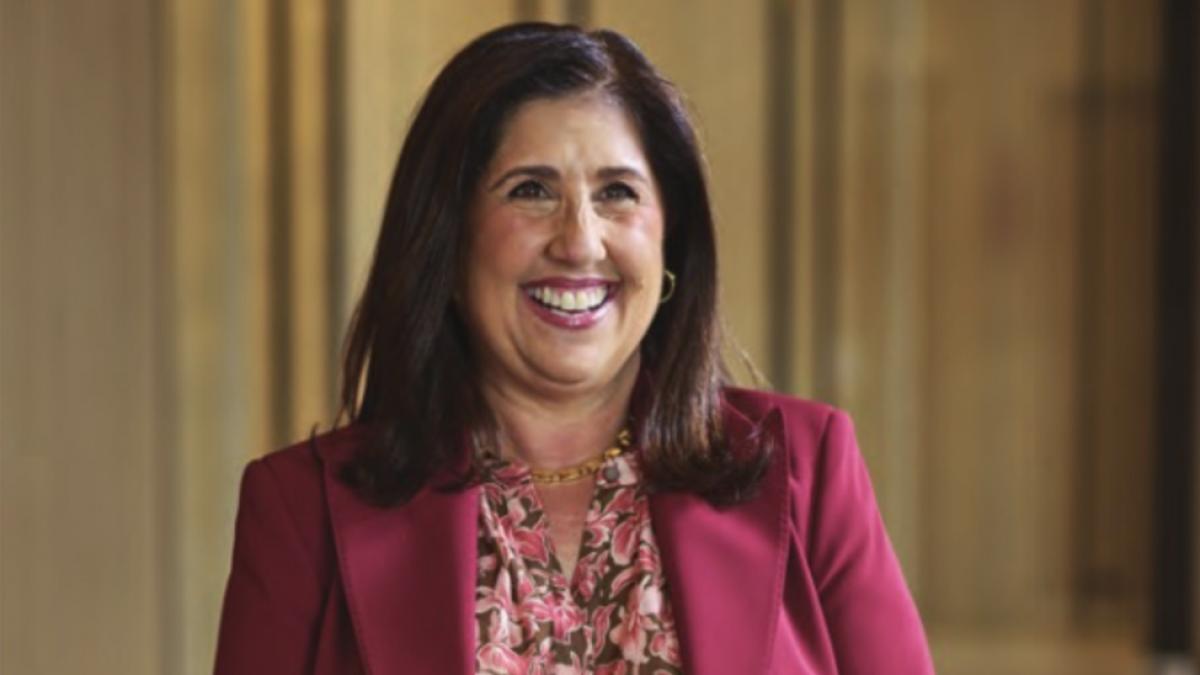
Hollywood And Washington Converge As Celebrities, Lawmakers Speak Out On Grievances
Dyson Professor Adam Klein appears on Global News, Canada’s national news network, in a segment on Bad Bunny’s political influence as he prepares to headline the Super Bowl halftime show. He discusses the artist’s unflinching political stances and the growing backlash he has received from the MAGA movement. Professor Klein also speaks to NBC24 on the broader convergence of politics and celebrity culture, noting that “politics and pop culture are very much traveling side by side,” reflecting how entertainment and public life increasingly overlap in today’s media landscape.
Staff Exodus, Case Gridlock: DOJ Environment Division Under Trump 2.0
In this E&E News article examining the dramatic staffing losses within the U.S. Department of Justice’s Environment and Natural Resources Division, Pace Haub Law 3L Dan Khieninson reflects on the uncertainty and disruption facing the next generation of environmental lawyers. The story highlights how departures from ENRD have weakened the federal government’s capacity to enforce pollution laws and defend climate regulations—raising serious questions about the future of environmental governance and public service. Dan’s experience brings a student perspective to these broader shifts and underscore both the challenges and resilience of aspiring public interest lawyers navigating a rapidly changing landscape.
Guiding the Next Generation of Financial Leaders
A seasoned finance executive turned educator, Professor Mathew brings real-world insight, rigorous mentorship, and hands-on learning to the Lubin School of Business—helping students turn complexity into confident decision-making.
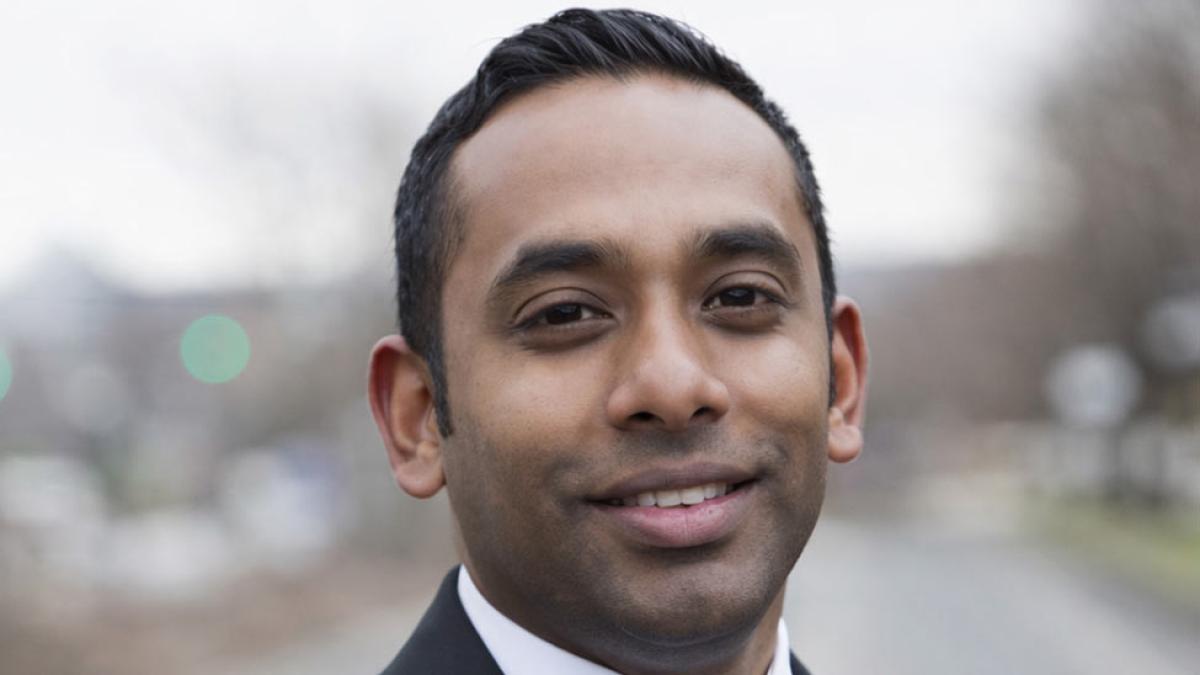
Emil Mathew

Finance
We connected with Professor Emil Mathew, who is currently pursuing his doctoral degree at Pace University’s Lubin School of Business while also teaching as an adjunct professor. His journey with Pace spans approximately seven years, beginning with his master’s studies and continuing through his doctoral work, all while staying actively engaged in the classroom.
This dual perspective as both a current student and adjunct instructor gives Professor Mathew a unique understanding of the student experience. Drawing from his time on both sides of the classroom, he is passionate about helping students navigate their programs with confidence while preparing them for meaningful success beyond the University.
Why Finance?
A childhood trip to the New York Stock Exchange with my father in the 1980s lit the spark. The energy, the people, and the idea that information and judgment could move markets drew me in. That early curiosity became a lasting passion as I studied finance and built a career at major firms—especially focusing on markets, valuation, and decision-making.
Why Lubin/Pace?
I chose the Lubin School of Business for its reputation and flexibility. While working full-time, I needed an MBA program that fit a demanding schedule without compromising quality. Once enrolled, the experience exceeded expectations. The faculty were deeply knowledgeable and committed to student success, and my cohort included accomplished professionals who built a strong, supportive community. That combination of academic rigor and meaningful relationships inspired me to pursue a doctoral program at Pace University—where I’ve found the same level of support and engagement.
What are your research interests/areas?
My research interests include mergers and acquisitions (M&A) valuation, economics, trading, and business operations—with a particular focus on technology-driven firms.
Why is it important to advance research in this area or these areas?
These areas matter because small errors in valuation, market assumptions, or operating forecasts can lead to significant economic costs—mispriced deals, distorted incentives, and inefficient investment. Research that clarifies key mechanisms—such as valuation inputs, market frictions, and operating drivers—strengthens governance, improves market efficiency, and informs better strategic decisions. This is especially critical in the technology sector, where uncertainty, intangibles, and high stakes make accurate measurement more challenging.
What do students learn in your classroom?
In my classroom, students learn to apply finance concepts to real-world decisions—not just memorize formulas. We focus on transferable skills such as analytical thinking, structured problem-solving, clear communication, and effective teamwork. Learning is highly experiential: students work with real market data—often using Bloomberg and AI tools—build and defend investment theses, and present recommendations as they would in a professional setting. For example, student teams construct portfolios, track performance, and deliver executive-style pitches explaining their investment thesis, risks, and catalysts.
We focus on transferable skills such as analytical thinking, structured problem-solving, clear communication, and effective teamwork.
Tell us about your time as a student with Lubin. You’ve mentioned that you completed your master’s here and are currently in our DPS program. What has that experience been like for you?
My experience at the Lubin School of Business has been genuinely formative. I completed my master’s while working full-time, so I was initially looking for a program that was rigorous yet realistic for a working professional. What I found was a learning environment that was both challenging and highly supportive—professors like the late Professor James C. Hall, who were accessible, practical, and deeply committed to student success, and a cohort of experienced professionals who enriched every classroom discussion.
That experience is a key reason I chose to continue my education through the Doctor of Professional Studies (DPS) program at Pace University. The DPS program has offered the same strengths: strong faculty mentorship, applied learning, and a community that encourages critical thinking and connects research to real-world business decisions.
What made you choose Lubin for your master’s and doctoral studies?
I chose the Lubin School of Business for its strong reputation and flexibility while working full-time. The faculty’s expertise, focus on applied learning, and the quality of my cohort made the experience deeply valuable—so continuing into the doctoral program felt like a natural next step.
What are some challenges you had to overcome to get to where you are today?
Balancing a full-time career—often working weekdays and part-time on weekends—while pursuing my education was a major challenge. Managing long workdays, late nights, and competing priorities required consistency and focus without letting standards slip. I also had to embrace reinvention: taking on greater leadership responsibilities, stepping into the classroom, and later transitioning into research—where the questions are harder, and the answers take longer. Each phase pushed me to build discipline, grow my confidence, and adapt quickly. That process has shaped who I am today.
Of which triumph are you most proud?
After completing my MBA, my career accelerated, and I had the opportunity to take on increasingly senior leadership roles—including Senior Vice President, Interim Chief Technology Officer, and Chief Operating Officer.
Still, the achievement I’m most proud of is the impact I’ve had on students: helping them connect classroom concepts to real-world decisions, build confidence, and communicate their thinking with clarity. Watching students progress from learning the material to owning the analysis and defending their recommendations is deeply meaningful. I’m especially proud of those who have earned internships and full-time roles at leading financial institutions—their resilience in today’s market has been truly inspiring.
Can you tell us about the Alpha Seekers competition you coordinated?
I coordinated the Alpha Seekers equity research competition at the Lubin School of Business to give students a real way to stand out in a competitive job market. After seeing many strong candidates face repeated rejections, I wanted to create an experiential platform where students could demonstrate their skills—not just submit resumes.
The competition was designed to mirror real-world equity research. Teams developed an investment thesis, supported it with analysis and valuation, and presented their recommendations in a professional setting with live Q&A. One of the key goals was to bring senior industry leaders to campus so they could engage with students directly, see the quality of their work, and offer real-time feedback.
We also invited students from neighboring colleges, which elevated the competition and created valuable networking opportunities. It gave participants a broader view of the talent landscape and helped them practice thinking on their feet and communicating with confidence—exactly the skills they need to succeed in recruiting and on the job.
What is the single most important lesson you’d like to impart to your students?
Learn to think and communicate clearly. In finance—and in any career—your advantage comes from turning complexity into a simple, defensible decision: what you recommend, why you recommend it, what could challenge it, and what you would do next.
What does #LubinLife mean to you?
#LubinLife means community and momentum—practical learning, faculty who are truly invested, and a network of students and alumni who challenge and support each other. It’s the combination of academic rigor, real-world application, and lasting relationships that stays with you long after the class ends.
Classes Professor Mathew Teaches
- MBA802: Business Economics
- FIN671: Behavioral Finance
- DVF350: Trading
- FIN260: Financial Management
- FIN351: Principal of Investments
- FIN330: Personal Financial Planning
- FIN359: Principals of Fixed Instruments and Markets
Pace University Advances Global Leadership on the SDGs
Pace University isn’t just studying the world’s biggest challenges, we’re helping solve them. From global policy conversations in Davos to student-led action at the United Nations, Pace is advancing the SDGs in real time.


Pace University continues to lead on the efforts to develop understanding of the need to implement the UN Sustainable Development Goals (SDGs) through faculty scholarship, institutional strategy, and student-led programs with measurable outcomes.
A new interdisciplinary volume, Pathways to Sustainable Development, edited by Narinder Kakar, distinguished senior fellow at the Elisabeth Haub School of Law, and Anna Shostya, PhD, professor and chair of economics at Dyson College, brings together global scholars and practitioners to address priorities in the UN Common Agenda. The book, published last November, outlines forward-looking strategies tied to environmental governance, inclusive economic and social development, and multilateral cooperation.
The conclusion of the book emphasizes the importance of these strategies in our shared effort as an international community to advance sustainable development principles. It highlights the definition from the Brundtland Commission’s report: “Sustainable development is development that meets the needs of the present without compromising the ability of future generations to meet their needs.” It also reminds us of a familiar and urgent refrain: “We have not inherited the Earth from our ancestors, we have borrowed it from our children.”
Sustainable development rests on three essential pillars: economic growth, social equity, and environmental protection. These values guide Pace’s research and teaching across disciplines. Faculty continue to translate scholarship into policy frameworks, curriculum, and campus-based programs that address climate resilience, access to quality education, affordable healthcare, and other long-term domestic and global challenges.
Universities across the globe are well positioned to play an important role in shaping strategies and policy-frameworks that focus on sustainability. This is exactly what President Marvin Krislov called for in January 2026, when he spoke at the World University Leaders seminar at the World Economic Forum in Davos, Switzerland. Invited as the only US university leader on the panel, Krislov joined peers from around the world to discuss the growing role of universities in global governance and SDGs leadership.
At the Forum, Krislov emphasized how universities can operate beyond the constraints of election cycles or market pressures. He spoke to the importance of academic freedom, interdisciplinary research, and student engagement in shaping sustainable policies. He also addressed the need for institutional alignment, ensuring that the values taught in the classroom are reflected in operations, partnerships, and planning. Krislov also highlighted faculty work, student leadership, and a strong tradition of civic engagement throughout the University.
That commitment is also reflected in the growing number of Pace students selected for the Millennium Fellowship, a global program coordinated by the United Nations Academic Impact and the Millennium Campus Network. This year, 34 students from across the University were selected, the largest cohort in Pace’s history.
Chosen from more than 60,000 applicants representing 130 countries, the fellows are leading projects focused on gender-based violence prevention, food systems, mental health, refugee support, education access, and environmental justice. The group includes students from Dyson College of Arts and Sciences, the Lubin School of Business, the School of Education, the Seidenberg School of Computer Science and Information Systems, and the College of Health Professions.
One team, Pace’s Blue CoLab, is partnering with students from Finland’s Häme University of Applied Sciences to develop a proposal in support of SDG 6: Clean Water and Sanitation. Together, they are building a case for a global right-to-know standard on water quality, which they will present at the United Nations in Fall 2026.
Through research, international collaboration, and student leadership, Pace is not only supporting the goals of the 2030 Agenda but also helping define how universities contribute to a more sustainable and equitable future.
More from Pace
Tyler McShane ’26 noticed something missing in the way students connect on campus and set out to change it. The result was a novel on-campus event that mixed psychology, honest conversation, and a little romance.
From immigrant to entrepreneur, Rafad Shlla ’26 shares her story of resilience and vision. Read her journey in her own words as she reflects on how Pace opened doors—from studying in London to creating her own app.
Pace University is accepting nominations for the Trustee Award and Community Service Award, honoring exceptional graduating students for their academic excellence and community impact. Submit your nomination by Friday, February 27, 2026!
Hearts, Minds, and Valentines
Tyler McShane ’26 noticed something missing in the way students connect on campus and set out to change it. The result was a novel on-campus event that mixed psychology, honest conversation, and a little romance.


There were game nights, movie nights, and stuff-a-plush nights—but nothing that asked students to slow down and really talk. Tyler McShane ’26, a Psychology BA/Mental Health Counseling MS student on the Pleasantville Campus, wanted to change that, but he wasn’t interested in simply adding another event to the calendar. He wanted to create something specifically for couples: a space that felt deeper, more intentional, and rooted in real connection.
As vice president of the Psychology Club, he understood how powerful that kind of space could be. And with the support of the club, he brought that idea to life in Hearts & Minds Date Night, a relationship-focused event that invited couples—romantic and platonic alike—to connect more meaningfully.
"...the idea of an event focused on relationship wellness and couples’ growth was meaningful to me.” —Tyler
“Before becoming vice president of the Psychology Club, I had long believed that the organization should host an event centered on relationships,” Tyler explains. “My boyfriend and I have been together for nearly five years, so the idea of an event focused on relationship wellness and couples’ growth was meaningful to me.”
As he rose through the ranks of the club, Tyler found the opportunity to make it happen. And Hearts & Minds Date Night wasn’t just a themed night out—it was intentionally designed to feel different from other events on campus. “None of the other events I saw were specifically tailored to couples,” he explains. “I think one of the reasons this event was so successful has to with how novel the idea was.”
The Psychology Club also brought in the kind of insight that only Pace could provide. “At the Pleasantville campus we have a professor who also practices as a sex and relationships therapist,” says Tyler. “So I thought it would be fitting to have her come and do a talk on communication in relationships, romantic and platonic alike.”
"I think one of the reasons this event was so successful has to with how novel the idea was." —Tyler
That professor was Christine Romano, PhD, assistant professor in the Dyson College of Arts and Sciences, who guided attendees through a hands-on communication activity. Each pair received two pieces of paper, one with an abstract image and one blank. One partner described the image while the other attempted to recreate it without seeing it. The exercise wasn’t about the picture itself, instead it focused on exploring communication with your partner.
“This event focused on creating a safe, open, and judgment-free space to explore communication, emotions, and sexuality in an intentional and empowering way,” explains Romano. “My goal was to blend psychology, real-life examples, and an interactive activity—such as the drawing communication exercise—to educate the audience on improving interpersonal dynamics and day-to-day interactions with the people they care about.”
More than 50 students and their partners attended, including many off-campus guests. Tyler noted that it offered something rare: a space to bring significant others into students’ campus experience. “It also gave students an opportunity to bring their off campus significant others on campus for the first time, which I noticed was quite common,” he says. “So this event also served as a means for those students to share a bit of their little world with their partner.”
"This event focused on creating a safe, open, and judgment-free space to explore communication, emotions, and sexuality in an intentional and empowering way." —Romano
The atmosphere reflected the event’s intention. Thoughtful decorations, soft lighting, and a warm tone helped set the stage for connection. Even students outside the event took notice. “Another student passing by, Nelson Lovell, saw the decorations and asked what was going on. We told him what the event was, he loved it so much he offered to take the photos for free,” says Tyler. “Just a stunning example of how awesome the Pace Community is.”
With a professional photographer stepping in, Tyler was able to enjoy the evening as a participant rather than through a camera lens. And there was plenty to capture. Along with the communication activity and relationship talk, guests were treated to Italian catering, decorated photo backdrops, and gift bags to take home.
If photos weren’t proof enough of the event’s success, attendees had plenty to say about their experience.
“This event was my first introduction to Pace University,” said Alex, a guest who attended with his partner, Vanessa. “I thoroughly enjoyed it—it exceeded my expectations. The food, the activities, the photographers—everything was amazing. It actually made me a little jealous of their events.”
Annalia, who attended with her boyfriend Cole, agreed. “Professor Romano's communication activity was fun and engaging. The food was great, and the photographer captured some really special moments of us. I’m definitely looking forward to the next event.”
"I think that level of intimacy and bonding our event explored was something new and exciting that people wanted to try out." —Tyler
With more than 50 attendees and overwhelmingly positive feedback, Tyler knew they had struck a chord. “I think that level of intimacy and bonding our event explored was something new and exciting that people wanted to try out. It’s an opportunity for openness that is not typically presented at other events,” he says.
Now, the Psychology Club is building on that success with a second event—timed perfectly for Valentine’s Day.
Hearts, Minds & Valentines will take place February 10, 2026 at 7:00 p.m. in the Kessel Gottesman Room. “This time we’re going all out,” promises Tyler. “Fairy lights on the ceiling, floating hearts, cupids, rose petals, and the balloon arches are making a return!” Though on the Pleasantville Campus, Tyler assures all students are welcome as long as they RSVP.
"Expect a guided, interactive experience designed to deepen emotional connection..." —Romano
And Romano will return with even more guidance for couples. “Expect a guided, interactive experience designed to deepen emotional connection—through love map questions, love languages, and intentional communication that helps partners feel seen, understood, and valued,” she says.
What began as one student’s idea turned into an event that clearly resonated, with plenty of momentum for what’s next. According to Tyler, “Clearly there is a want for more. And we aim to deliver.”
Make sure to RSVP for Hearts, Minds & Valentines to join in on the fun.
More from Pace
From immigrant to entrepreneur, Rafad Shlla ’26 shares her story of resilience and vision. Read her journey in her own words as she reflects on how Pace opened doors—from studying in London to creating her own app.
Pace University is accepting nominations for the Trustee Award and Community Service Award, honoring exceptional graduating students for their academic excellence and community impact. Submit your nomination by Friday, February 27, 2026!
Pace University isn’t just studying the world’s biggest challenges, we’re helping solve them. From global policy conversations in Davos to student-led action at the United Nations, Pace is advancing the SDGs in real time.

